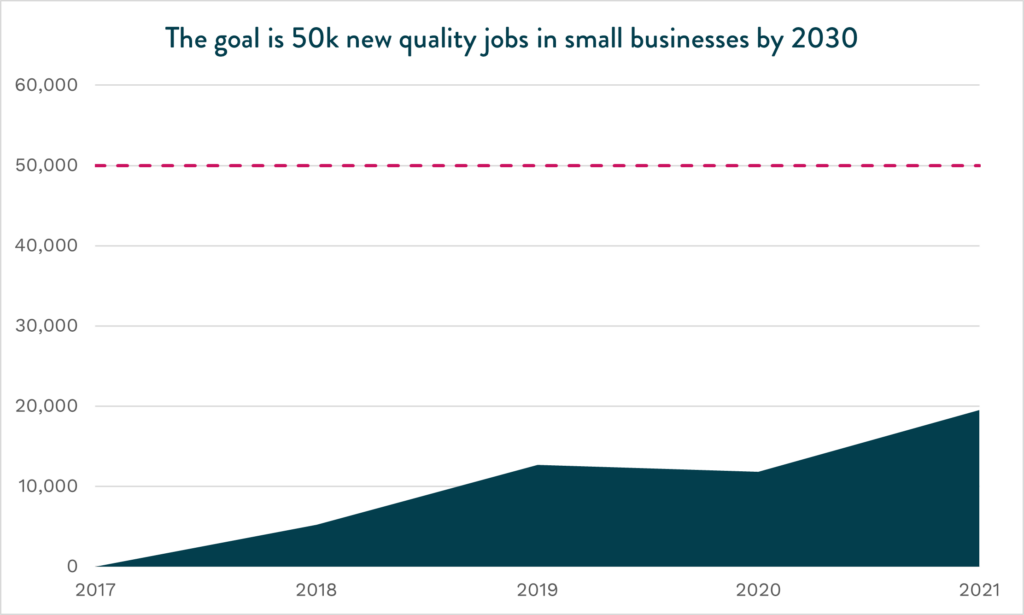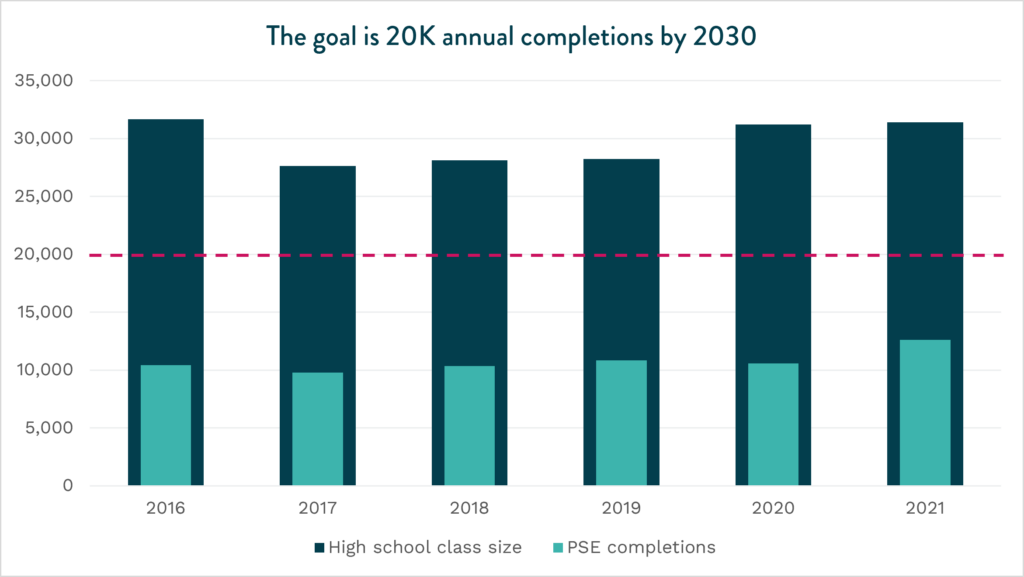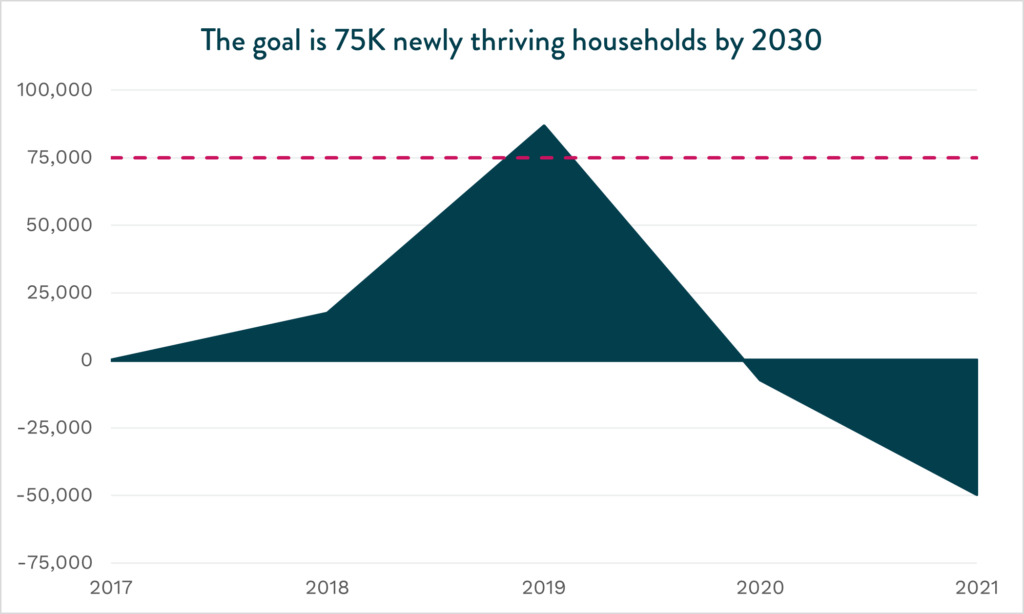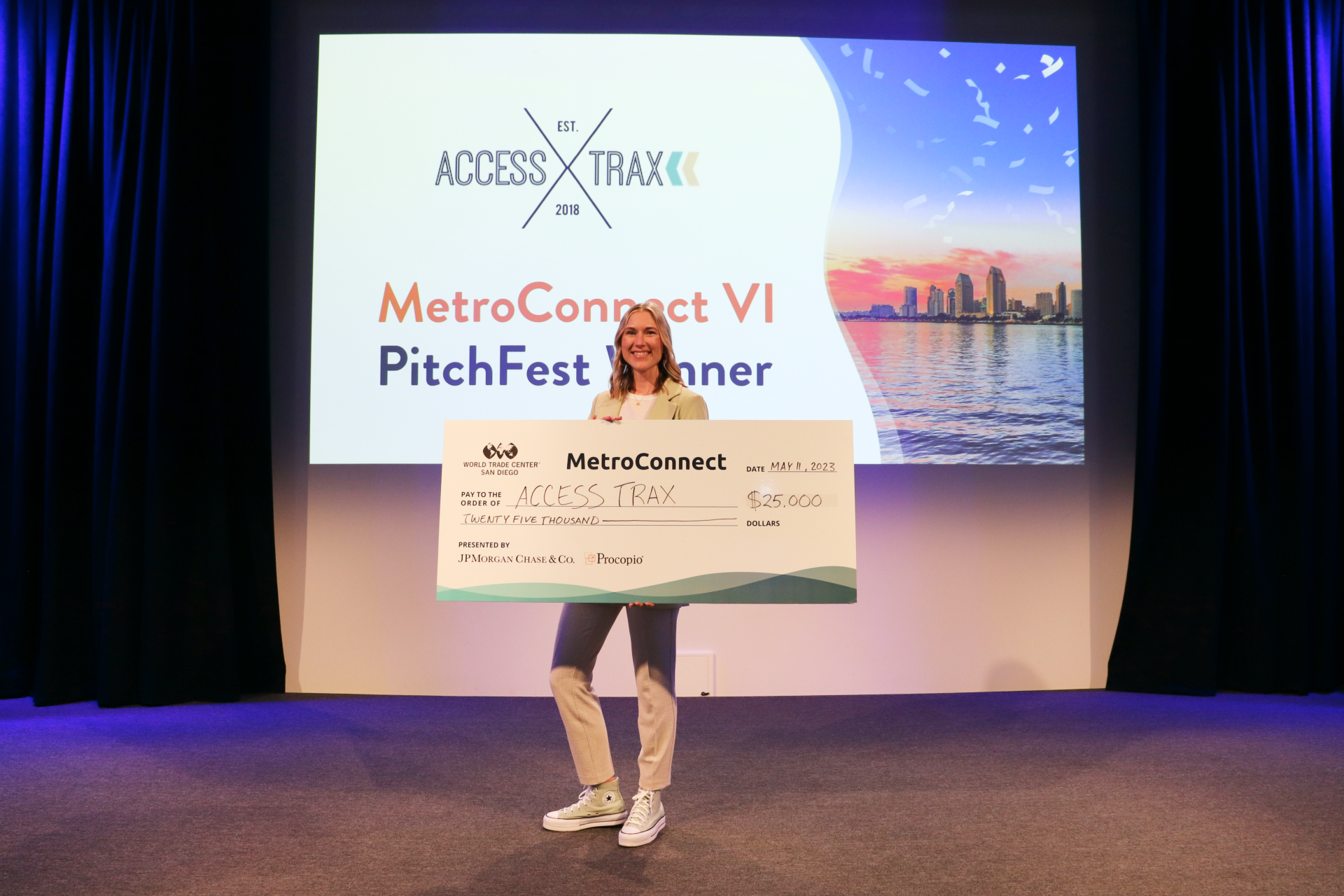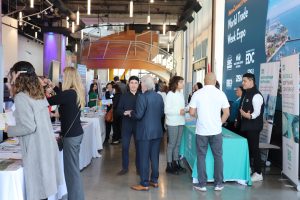Originally authored by Taylor Dunne in Voice of San Diego’s ‘A Parent’s Guide to San Diego Schools’
Every parent wants to see their child pursue a career that makes them happy, and it is a bonus when they can feel confident that that career will also set them up for financial success.
In San Diego, one of the most dynamic economies in the world, there is abundant opportunity for high-impact careers and upward mobility—sometimes you just need to see it to believe it.
In my role as the director of talent initiatives for San Diego Regional Economic Development Corporation (EDC), I have devoted my career to improving the pathways from local education programs into high-wage, high-demand jobs across San Diego County. Here are some common questions I get asked about these efforts in our region.
Q: What is Career Technical Education?
According to the state of California’s Department of Education, Career Technical Education (CTE) is “a program of study that involves a multi-year sequence of courses that integrates core academic knowledge with technical and occupational knowledge to provide students with a pathway to post-secondary education and careers.” Here in San Diego County, the board of education’s first goal speaks to CTE as a priority, stating that the public education system should aim to “connect the educational experience to the world of work, to guarantee all students graduate prepared for college, career, and beyond.”
CTE courses can fall into one of 15 industry categories, identified by the California State Board of Education. The courses can be standalone, or part of a multi-year series. Some of them also count toward A-G requirements, which must be completed for admission into a California public university.
Q: When should I start thinking about career pathways for my child?
CTE opportunities at school are a great time for students to begin thinking about prospective career paths. K-12 schools across the region offer these courses, and some have gone the extra mile to really set students up for success.
For example, the Chula Vista Elementary School District offers Innovation Stations where students learn about careers in life sciences, health, technology, and more. A portion of this experience includes local tech giant Qualcomm, which brings to life what the students are learning in the classroom.
Helix High School offers a biotechnology pathway that stacks courses for grades nine through 12. Kearny High Education Complex runs four small, unique schools, each focused on a critical industry, embedding CTE in students’ learning throughout their four years. These kinds of curriculum, coupled with internships, school clubs, and other opportunities, can offer students the chance to begin exploring what careers are available to them in San Diego and how they might begin preparing for those careers today.
In fact, employers agree that experience indicating a proven interest, like school clubs, extracurricular activities, and elected courses like those available through CTE pathways, rise above other qualifications in roles like computing and engineering. Candidates with less formal training that can articulate how they have independently pursued opportunities are more appealing than those who are fully trained but disinterested.
On the other hand, these opportunities can also help young people weed out the careers they do not want during these formative years, before they invest time and money into further training.
Q: What are the jobs of tomorrow?
Looking ahead, future jobs are technical in nature, and they’re in industries like technology (especially with the rapid development of artificial intelligence), healthcare, life sciences, and advanced manufacturing. We also anticipate alternative energy will continue to climb that list. Increasingly, these jobs require some sort of post-secondary training.
Everything from trade schools to four-year degrees and beyond become critical for preparing students to take on those roles into the future. In fact, over 100,000 more jobs require a post-secondary degree today as compared to just eight years ago. Luckily, they are also some of the highest paying in our region. We see growth in jobs that pay salaries of upwards to $149,000 per year.
So, what does that mean for San Diego’s future talent and local companies?
It means that community college, trade school, and university classrooms need to be accessible to all San Diego students regardless of economic status or family history. This economic growth, combined with a declining population, means that companies cannot continue to rely on traditional recruitment patterns like sourcing from elite universities, and instead must consider additional channels.
Working age population vs. jobs over 10 years:

In fact, to keep pace with the economy, the San Diego region will need to double the number of people receiving a post-secondary education by 2030.
Q: What tools and resources are available?
EDC is excited to have been able to help bring a new distinction to this year’s version of Voice of San Diego’s A Parent’s Guide to San Diego Schools. You can look for the labor market score for schools offering Career and Technical Education programs. Additionally, parents can explore local learning opportunities in relevant fields at the San Diego STEM Ecosystem’s web directory, which includes a filter for cost-free options.
Finally, our organization offers resources that can help parents connect with the local economy and industry-vetted training programs:
- Explore EDC’s Talent Dashboard where you can access more real-time local data, like what is shared above, to help with understanding the future of jobs in San Diego.
- Check out Advancing San Diego’s Verified Programs. These are post-secondary training programs across the region that have been vetted by local companies for teaching the skills needed for the jobs of tomorrow while also reaching and serving a diverse student population. In receiving this status, Verified Programs open opportunities for students to access paid internships and other critical work-based learning experiences.
- Learn more and get involved in EDC’s Talent Initiatives. Contact our team today:

Taylor Dunne
Director, Talent Initiatives
![]()
This story was first published by Voice of San Diego. Sign up for VOSD’s newsletters here.




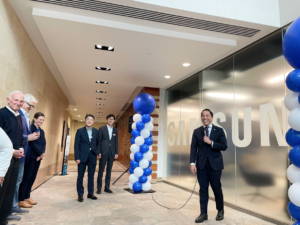
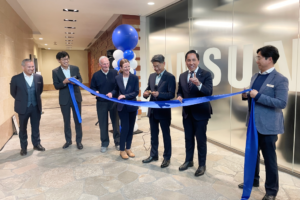 Samsung Semiconductor has had offices in San Diego since 2010, with an R&D center focused on SOC, modem systems, RF systems, multimedia, AI, and commercialization. The company employs more than 200 employees in San Diego with plans for additional growth.
Samsung Semiconductor has had offices in San Diego since 2010, with an R&D center focused on SOC, modem systems, RF systems, multimedia, AI, and commercialization. The company employs more than 200 employees in San Diego with plans for additional growth.